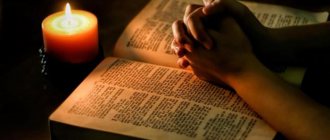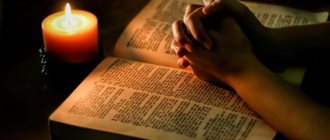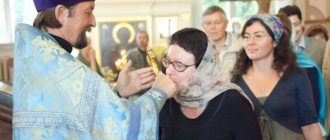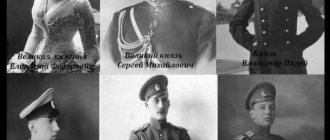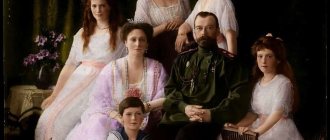Most people are of two minds about the Russian Orthodox Church. On the one hand, these are dilapidated churches with priests serving in them, who are working with all their might to restore the parish. On the other hand, there are luxurious churches and priests in them in gold embroidered robes, living in luxurious mansions. Which of this is a myth, and which is true, and how do priests actually live in Russia? We want to lift the veil of secrecy and share with you the information that one of the clergy told us.
Education
In Russia there are more than a dozen educational institutions where you can get an education as a clergyman. The most prestigious are:
- Moscow Theological Seminary;
- Theological Academy in St. Petersburg;
- Trinity-Sergius Academy;
- Russian Orthodox University.
In total, there are eight Orthodox universities, 50 theological seminaries, 32 theological schools and 1 church-wide postgraduate and doctoral school named after Saints Cyril and Methodius in the Russian Federation.
Seminary studies last for five years. During this time, students study basic theological foundations, including introduction to theology, Biblical history, catechism, dogmatics, comparative theology, pastoral pedagogy, and sectarianism. A psychology course is required. All this knowledge is required for further service in the parish church, compliance with all church traditions, and the ability to communicate with parishioners.
Hybrid and flexible working methods: strategies for company success in uncertain times
Highlight your results first: How to convince your boss to give you a pay raise
How to make your home office the highlight of your interior: adding bright accents
Requirements for a priest
Of course, certain requirements are put forward for a sacred follower, as for any candidate for a position. Let's look at them in more detail:
- Age from 30 years.
- One official marriage.
- Be a parishioner.
- Have recommendations from a clergyman of higher rank.
- Have an education received in a theological school or seminary.
Among other things, a person preparing to become a priest must pray regularly, learn the Church Slavonic language, know the Holy Scriptures, the acts of the Ecumenical Councils, etc., and take care of his appearance.
The priest communicates with parishioners every day, so his human qualities are of great importance, such as responsiveness, cordiality, decency, honesty, and the ability to properly build relationships with believers and non-believers.
Car lending in the Russian Federation increased in 2022 by 1.5 times compared to 2022
Sucking quagmire: how to ask for help if you are mired in loans
The key to productivity is energy management: how to create your daily routine
But still, the most important requirement for a priest of the Orthodox Church is faith. Because he is a kind of mediator between God and people, and faith can be brought into the world only with an open and pure soul.
Village
Last year (2007 - editor's note) they wrote and talked a lot about how dangerous it is to be a rural priest. Father Vladimir does not agree with this. It’s difficult—yes, sometimes even very difficult. But he doesn’t see any particular danger. “The only time I was really scared was when they came to buy icons from me,” he admits. “Then they showed me a suitcase with money: “We can, they say, let’s see: what if you have old icons in the church?” That’s when I got scared, I realized that if these guys found something valuable, they would stop at nothing. I barely drove them away... But I’m not afraid of the local guys: there are very good people here. They drink, of course, they can swear, but no more... And they respect me too. I broke up village fights here, because they wouldn’t beat me. If anyone else had gotten in, he would have gotten it from both fighters, but the priest is respected. They respect and are a little shy. They come with troubles and everyday questions. But they seem to hesitate to cross the threshold of the church during the service, confess and take communion. At first, Father Vladimir served for the only parishioner - his wife. Then the situation changed a little for the better.
A ward with “social beds” in a hospital is actually a nursing home. There are people here who have nowhere to go after being discharged. For many of them, the priest is the only person who comes to visit them.
On Saturday evening, as many as fifteen people were at the service - a real record. True, not a single man except the altar boy who came from Msta. Mostly grandmothers, but there are also children. A woman who came to Father Vladimir on an economic matter stands at the very door with her head uncovered - she is shy. One of the grandmothers whispers something to her and motions for her to come over. She refuses, hesitates, and only at the very last moment agrees - she quickly puts on the handkerchief offered to her and comes up to anoint herself with oil. After the service, she talks with Father Vladimir on the porch of the church: “Father... I also wanted to ask... is it possible to baptize three boys?” - Certainly. How old are they already? - The youngest is thirty... The worldly authority of the priest is indisputable. There are no rumors here about where the priest got his car, telephone, etc. - everyone already knows that. Everyone also knows that Father Vladimir will help in trouble. But almost no one comes to confession; the only teenage boy who decided to go to church was teased as a “pagan,” and he quit. And, of course, a standard set of troubles for any village is flourishing around, about which there is no point in writing anymore. Suffice it to say that a year ago in a neighboring village, a sixteen-year-old girl died - at a disco she took part in a competition to see who would drink the most alcohol... “To change something, two things are needed here,” says Father Vladimir. “It is necessary that I, a priest, always preach and patiently explain to people their mistakes.” But man is a free being. Having heard my words, he himself must react to them. I try to do everything in my power, but until people go to church, I am powerless. It happened that Father Vladimir managed to achieve success. One day a woman from Vyshny Volochok brought her completely drunk husband and said: “Help him recover!” left in the care of a priest. Now the former alcoholic does not drink. Quit. With the support, advice and prayers of Father Vladimir. But largely because he himself wanted to quit, he grabbed any job, helped in the temple - just to keep himself busy with something and take his mind off thoughts about alcohol. Unfortunately, such cases are exceptions rather than the rule. “In our country, it’s even difficult to get a person to work.” He will beg you for an advance, and then he will do nothing! - Father Vladimir laments. “You can’t give them money, much less vodka.” Whoever pays with vodka takes a sin on his soul... And in general, you shouldn’t blame everything on the villagers, because the city people don’t help them, but more and more on the contrary. They say, let's say, that there are only superstitions here. Well, yes, it's true. And there is a pond here, which is avoided, “because there are mermaids in it,” and “spirits live in the birch tree.” But when the city people come, they have the same mess in their heads. We have already reached the point that the urban villagers are teaching this nonsense! - It turns out that you are trying in vain here? - Why? - Well, you talk to people, but they don’t hear you. - Yes, they don’t hear. But I am no longer only trying for them, but also for their grandchildren. Their grandchildren will be different. “Do you think life here will last another three generations?” “I think in three generations it will be better.”
Income of a priest during Russian times
In Russian times, a priest’s income consisted of a certain part of the amount of donations on which his entire family lived; the rest was spent on the improvement of the temple. Later, due to the small amounts of voluntary donations, the church established a fixed fee for a number of services provided by priests. Thanks to this decision, it became possible to plan the parish budget.
At the beginning of the last century, the priest’s income consisted of a land allotment, as well as payments for church ceremonies performed by him, while 2/3 was taken by psalm-readers. Payment was accepted not only in monetary terms, but also in natural products. The situation was aggravated by tax deductions of 25% for the maintenance of religious educational institutions.
You should never take their word for it: how to work with sycophantic colleagues
It's never too late to learn new things: why it's not a shame to be an intern in adulthood
BMW is 50 years old: 50 crossovers with the anniversary logo will be brought to Russia for sale
Absentee parish
Vladimir’s father’s main assistants are his wife and the townsfolk, of whom there are more and more people around. A doctor from Moscow, a technician from the nuclear power plant in Udomlya, other people from Tver, Moscow, St. Petersburg and nearby regional centers - all of them are parishioners of a distant rural church. It turns out to be a kind of “absentee” community. Some come for a day just to help in the parish, while others have houses nearby where they live in the summer. The number of the latter is growing rapidly. In a couple of years, the price of a wooden hut in the Mlevo region soared from seven thousand rubles to one hundred and forty thousand. Among the townspeople helping Father Vladimir, there are churchgoers, and there are also those who first encountered the real Church only here.
“I sometimes ask: why didn’t you go to the priest in the city?” They answer me: “Yes, he will never be caught!” I say: “Have you tried to come up when he lets you kiss the cross after the service?” No, they say, they didn’t try... However, sometimes in the city the thought of a temple did not even occur to them. Only when they arrived in our region did they come to our church... This also happens.
The help of people from the city is the most important resource for a rural priest. They will help both financially and with their own labor. Townspeople come to sing in the choir and help with the restoration of the temple. Father Vladimir never asks for money, and they offer him not money, but specific help. The most common question is: what do you need first? Bells? They deliver it themselves and help you install it. Cover the roof? They buy materials and help with workers. - So, maybe it’s better to move to the city then? After all, there are not enough priests in the city. - Lacks. But people also live in villages. And they need us. There may be fewer of them, but that doesn’t stop them from being human.
Salary today
Nowadays the situation is completely different. A worker at the Orthodox Church told us. That today clergy, like ordinary citizens, have a work book indicating their position, a number in the Pension Fund, and a compulsory medical insurance policy. Since 2009, all economic affairs in the Russian church have been managed by the Financial and Economic Administration of the Moscow Patriarchate.
The priest's salary is determined by the rector as a fixed amount; it is based on the average salary in each specific region. Its size largely depends on the financial situation of the parish. Sometimes this is a more than enough amount to live on, and sometimes it is minimal. Some church ministers even work for free, earning money elsewhere in their free time from serving.
The priest gave us some numbers to make it clear what we are talking about:
average income – 25 thousand rubles;
- in the Moscow region - 60 thousand rubles;
- in the Leningrad region - 50 thousand rubles;
- in the Primorsky Territory - 100 thousand rubles.
What does salary depend on?
The income of each temple consists of donations for weddings, prayer services, baptisms, memorial services and similar events, sales of candles, books and various utensils, and commemorations. The rector of the church receives all these funds, and he is responsible for their distribution - he pays contributions to the diocese, pays for utilities, pays wages, purchases items for worship, and carries out repairs to the church.
This amount is different for each temple, since it depends on many factors: its location, the number of parishioners, the presence of trustees and patrons.
As a rule, rectors of large and wealthy churches in large cities have high incomes. Sometimes it is comparable to the earnings of a mid-level businessman. That is, it will be enough for good repairs in the apartment, a foreign car and annual trips abroad. Ordinary priests, including those serving in these luxurious churches, and rectors of churches in villages and small towns have average earnings, if not low. Therefore, the monthly salary can vary from 10 to 100 thousand rubles.
Inheritance: interesting facts about credit history. Are there many debtors in the Russian Federation?
Banal laziness: 5 habits that can cause you to be considered incompetent at work
For those who have trouble with self-organization: how to get ready to work from home
Road to the temple
The village of Mlevo is located in the north of the Tver region, far from major roads. In Vyshny Volochyok you need to turn off the Moscow-Petersburg highway, drive for some time along the narrow highway to Udomlya, then turn again onto a side road and wait for the moment when the asphalt suddenly runs out. It happens right in the middle of the forest: the car gets tossed up, and the driver says: “That’s it, there are no normal roads further.” At first the car shakes slightly, then it begins to shake more strongly. After some time, the potholes become up to half a meter high, and one can only wonder how people manage to overcome them in old Volgas and Zhigulis. All around there is a dense pine forest, into which even local old-timers try to walk carefully. It’s easy to get lost here, and there are plenty of predatory animals: wild boars, wolves, bears... From Vyshny Volochyok to Mlevo it’s a little more than an hour’s journey, after which the first thing you notice is the bell tower of the temple - the Church of the Savior of St. George rises above the surrounding area, serving here as the main landmark during for two hundred years now.
The Spaso-George Church is huge, and its size once again speaks of how many people lived two centuries ago in these now almost abandoned lands. Photo by Andrey Bezlepkin
In size and external luxury, this temple is in no way inferior to the city ones. Baroque architecture, high ceilings, interior space. All this was built with hundreds of parishioners and several priests in mind. There were many large villages around then. Now in each of them one or two houses remain residential. This is a real outback with all its inherent features and problems. Everything is different here, not like in cities. And the role of the priest, his relationship with people and authorities in the village microcosm is also special.
Additional income and pension
A priest's earnings are not limited to his salary; it also depends on the demand for his services and the generosity of parishioners. Requirements are services that are provided by a clergyman to order, namely privately.
There is a trend in many churches to clearly define fees for certain types of these services. However, this should not be the case; this is not a Christian approach. You are allowed to thank them with money, but at your own discretion. There should be no tariffs for church services.
There is no state pension for priests. However, upon reaching the age of 65, the priest receives accruals from the diocese. In case of serious health problems, earlier payments are possible; all these issues are resolved on an individual basis.
Trading in the church
Rule 76 of the Sixth Ecumenical Council prohibits trade in the church and on its territory, but in reality everything is completely different. A typical excuse is the reluctance of most parishioners to donate even for candles. Perhaps this makes sense, but still it doesn’t have to be done once at a time; one person can contribute an amount that covers the consumption of all the candles for the day. The church is visited not only by the poor, but also by generous parishioners.
For example, in the Greek Orthodox Church you can take candles for free, but it is under the protection of the state. It is clear that these are pressing problems for a village parish, but it is extremely difficult to believe in the financial problems of the Cathedral of Christ the Savior.
Where do the priests live?
We often see priests in expensive robes and coming to work in luxury cars. We think that they live in mansions, part of the living space of which was allocated by the state.
But the priest with whom we had a chance to talk said that they do not receive living space. For many who would like to leave property as an inheritance to family or children, this is a big problem. Because after graduating from theological school, a priest can be sent to any corner of the country, where he will live in special so-called “church houses.” If a transfer to another parish is ordered, the house is vacated and the newly arrived priest occupies it.
If you want to buy your own home, you can only earn it. Here everything depends on the personal characteristics of the priest and life circumstances, how clean his hands are, what the mentality of the parish is and the amount of wages.
Found a violation? Report content
Three days in the family of a rural priest (56 photos + text)
The village of Sabynino, which is located fifty kilometers from Belgorod, was the family estate of the Volkonsky princes. The family of the princes is ancient, descended from Prince Rurik of Novgorod. Prince Fyodor Ivanovich Volkonsky and his son Fyodor were governors in Belgorod during the time of troubles (1604-1605). Prince Ivan Fedorovich in 1639 ruled in Userda (a long-vanished city on the border of the Belgorod region). The descendants of Ivan Fedorovich’s brother, Peter, settled here for a long time and chose the village of Sabynino for themselves. The founder of the Sabyninsky estate, Prince Ivan Nikolaevich Volkonsky, was a participant in the Seven Years' War. Born in 1730, and in 1758 he had the rank of lieutenant. In Sabynino, the Volkonskys had a large house with outbuildings, a park with chestnut and linden alleys. The village itself was famous for its fairs, which were attended by people from various regions of Russia and Ukraine. Here stood a large beautiful church, behind the fence of which was the family tomb of the Volkonsky princes. Local old-timers still remember eighteen large tombstones with the names of the founder of the estate, his children and their relatives. After the revolution, the church was destroyed, but the princes managed to leave - they were not touched. A school was built in the princely house, but during the war it was completely destroyed. The remaining tombstones after the war were slowly stolen for household needs. In the early sixties, when a monument to fallen soldiers was erected in the village, three tombstones, which miraculously remained, were installed next to the place where the temple had once been. This, in fact, is all that remains of the former village of Sabynino. After the start of perestroika, local collective and state farms gradually went bankrupt. There were also attempts to revive agriculture in the local fields, which were previously famous for their harvests. People came from Moscow, bought the remains of farms, grain lands, but things were going badly and now, when you drive along the dirt road from the highway from the city, you can see the ruins of outbuildings to the right and left. About a hundred people now live in Sabynino - mostly old people. There is nothing here - no store, no post office, no clinic. The local primary school closed - no one could go to it. Next to the tombstones of the Volkonsky princes there is a destroyed store building. You can’t get to Belgorod from here - you first need to take a bus, which runs three times a day, to the regional center, and from there go to the regional center. In the center of the village there is a huge wasteland - these famous fairs used to take place here and local residents used to find various strange coins in the ground, left over from those times. Now there is desolation and silence here - life has gone to other places.
Behind the three princely stones you can see two brick residential buildings. The one on the left is home to a large family of eleven people. Once upon a time, Vladislav’s father’s parents left Belgorod and started a new life here. A retired military man and university teacher became farmers. Now this is called “the father’s house” - Vladislav, having become a priest after graduating from St. Tikhon’s Orthodox University, met a like-minded woman who became Mother Elena. Here they now live with the parents of father Vladislav and their children - Ivan, Sofia, Andrei, Ksenia, Alexandra, Olga and little Vladislav, named after their adoptive father. This is where I came last Friday to see all this with my own eyes and tell you about these people.
Everyone fits into five rooms - they live closely, but amicably. Three adult girls have two rooms, the father and mother sleep with the kids, the old people live downstairs, and in another room there is a study with a library. There is also a kitchen and dining area in the annex.
The “Kopeyka” in the photo has not been driven for a long time - it was a gift from one of the parishioners and Father Vladislav drove it to the fullest. Now the family has an old “four”, donated by the archbishop, and the same half-broken “Sable” - also someone’s gift.
Father can't live without a car. The church in which he serves and which he spent five years building together with everyone else is located five kilometers from his home - in the village of Krivtsovo. There was a time when Father Vladislav walked to the old church and to the construction of the new one almost every day.
On Friday, I got from the ship to the ball - Father Nikolai Grigorievich brought me home from the station, and at that time a service was already going on in the church. We went there with the kids and their mother. All the children, with the exception of little Vladik and Sofia, help their father lead the service. That day, Father Vladislav served a prayer service to Saint Xenia of St. Petersburg and the girls sang along with their mother. Sofia sat either on the bench, holding Ksenia’s hands, or in her mother’s arms.
It’s cold in the temple in the morning and everyone is dressed in warm clothes.
While the priest was leading the service, I got to know the children. On the left is Ivan, the natural son of Vladislav and Elena, on the right is the adopted son Andrei. Andryushka then followed me around, got into every frame and carefully checked the results on the camera screen.
No, let me make a small digression and say a few words about the children who were taken in by the family from Sabynino. They told me the story of each of them, and each such story is capable of changing the attitude towards people in general. I’m an adult, I’ve seen everything, and it seemed like nothing could surprise me anymore. However, what each of the adopted children in the family of Vladislav’s father experienced would be enough for a whole ocean of human evil and injustice. I won't write about this, it would be tactless and heartless. Just believe and look at them carefully. There are thousands of them near us. We just don't see them.
Ksenia had an angel day on Friday. She reads a prayer in Old Church Slavonic - loudly, clearly and with great pleasure. Ksyusha is the eldest among the children, very serious, and knows how to do everything around the house.
After the service, the priest gave communion to everyone, and, first of all, to the children.
Birthdays receive simple gifts that match the meager family budget.
This small hall in front of the children's rooms serves as a playroom for the children. Andrey showed how he can spin on rings. Vanka immediately replaced him, and little Sofia followed him.
The whole family gathers for lunch. On Friday there is only Lenten on the table. Before the meal begins, the priest reads a prayer, the little one echoes him out of place.
There is an ironing board in the office - there is nowhere else to put it. My mother ironed my linen and told me how she was collecting bits and pieces of information about the Volkonskys, dreaming of finding descendants and bringing them here. Mother Elena, like Father Vladislav, graduated from the Orthodox University in Moscow. If children are afraid of their father, they adore their mother and try to help her in everything. Even ironing clothes, imagine.
